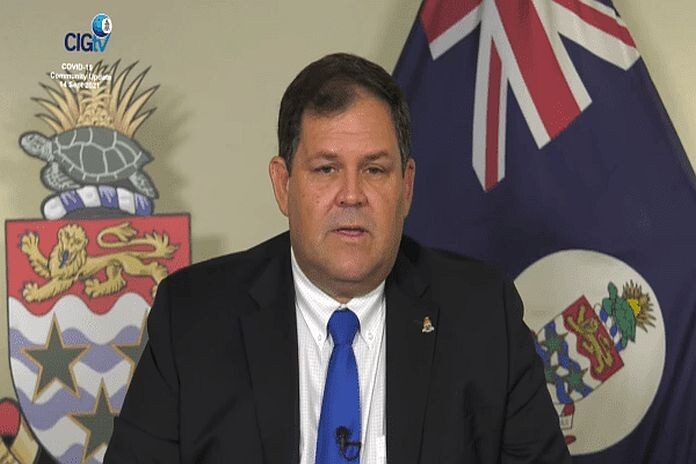GEORGE TOWN, Cayman Islands (CNS) – Premier Wayne Panton has welcomed the move by Cayman’s high street banks to stick to the agreed delay on rolling out interest rate hikes on local loans and mortgages following last week’s Federal Reserve increase. However, he said that even though he appreciated the banks’ agreeing to a 30-day notice period, he was still looking for more and raised concerns about people losing their homes.
“I hope and expect that they will engage in further dialogue with the government to determine how to further alleviate or potentially avoid the impact of future rate increases by the Fed,” Panton, who is also minister of finance, said in a release Wednesday. “We must guard against Caymanian homeowners potentially losing their homes due to the inability to meet increased interest charges, and local business struggling to keep up with their financing payments in addition to other high-level expenses.”
Following the premier’s intervention over the rate increases, the Cayman Islands Bankers Association agreed to implement a 30-day notice period for any further rate hikes through June 2024. However, his additional request for them to consider not increasing the rates at all fell on deaf ears.
In the meantime, as he continues to negotiate with them to encourage a change in their approach, Panton encouraged all borrowers, both residential and commercial, to investigate their options with lenders to avoid problems, including fixed-rate borrowing for periods of time and to maintain open lines of communication with their lending institutions.
Panton said he had initially asked the banks for a 60-day notice period and to consider ending the practice of raising local rates in tandem with the US.
“While this is done automatically in the Cayman Islands, this is not the case in other jurisdictions, including our fellow British Overseas Territory of Bermuda,” the premier said. “Until now, retail banks in the Cayman Islands immediately passed these increases directly on to their customers, with homeowners and other borrowers seeing their monthly payments increase significantly over the past 14 months.”
Panton said this has been very difficult, especially given the high cost of living, with food, utilities, gas, accommodation and other necessities all costing more.
“While there is very little that we can do locally to control the cost of food, fuel and other consumables, the decision to increase local interest rates and the timing thereof does lie within the local retail banks’ discretion, and I am thankful that they collectively saw the need to at least delay the impact for Cayman’s borrowers by one month,” he added.
But with higher interest rates increasing the price of borrowing and driving housing costs up, people have seen their mortgage payments increase by hundreds of dollars in less than 18 months. This affects renters as well as homeowners and also impacts the cost of doing business as owners pass the increases on to customers
As reported on CNS last week, the US Federal Reserve increased its base interest rate by 0.25 percent on Wednesday, 26 July. The increase brought the prime rate to 5.5 percent, which is the highest it’s been in 22 years and the eleventh increase since the start of 2022, but it could be repeated next month. The prime rate is always 3 percent above the Fed rate, and this is what Cayman retail banks adopt as the Cayman prime rate as well.
Butterfield Bank (Cayman) Limited and Cayman National announced prime rate increases from 25 August, while RBC Cayman has said it will wait until the 28 to increase the rate from 8.25 to 8.5 percent.
 Richard Manley
Richard Manley 